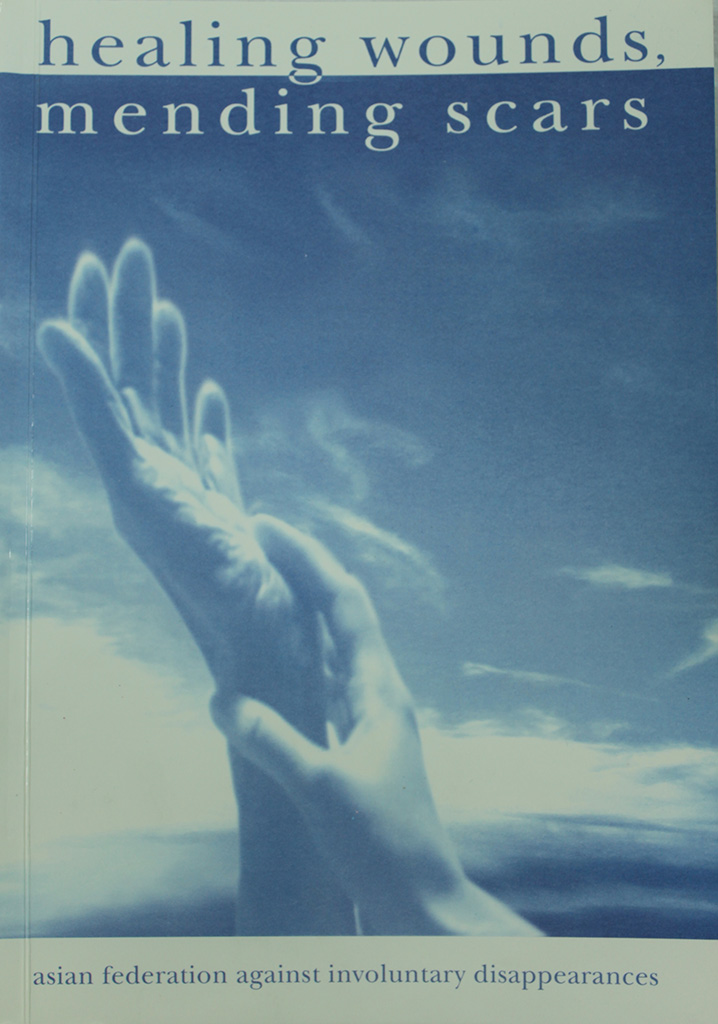Tuti Koto’s involvement in human rights advocacy began after the disappearance of her son Yanni Afri and after seeking assistance from KontraS. For all her personal pains and the inspiration that she generated within the activist movement, in the year 2000, she was awarded as Outstanding Woman of the Year by a women’s NGO in Indonesia. Fondly called as Mommy by her friends and colleagues in KontraS and IKOHI, Toti Koto has gained several more children while searching for her son.
I am now 68 years old. My son Yani Afri, a driver, was born in 1971.
On 26 July 1997, a few days before the presidential elections, my son went out late in the afternoon. The following morning, one of his friends came to our house and told me that my son was arrested by the military in Tanjung Priok.
So I immediately went to the military station to ask for Yani Afri’s whereabouts. The officers told me that my son was no longer in their custody and he had already been released. The station chief even asked me to find my son’s friends and find out from them where he might be.
After that, I went to look for his friends but they told me that they didn’t know anything. I returned to the military station crying and asking for my son’s whereabouts. The military officers then showed me my son’s release papers; but I was persistent. They insisted that they knew nothing.
I was so distressed that I continued crying. Then, one day, my younger son told me about KontraS. It was the first time that I heard of the organization. Casting my inhibitions aside, I went to KontraS and there I met Munir. He helped me search for Yani Afri in the various military headquarters and government offices. I really felt insecure and uneducated at that time, but Munir encouraged me to speak up and continue looking for my son. We went everywhere, even having a personal dialogue with former President Abdurrahman Wahid and armed forces Chief Wiranto, but still there were no results. KontraS also assisted me so I could undergo a three-day therapy session.
Despite the rehabilitation however, I can’t help but cry every time I went to KontraS and saw those street singers, for I always remember my son. He was poor but he was an artist and really liked to sing and play the guitar. He even composed a song for me once. The music is from a popular Indonesian song but he altered the lyrics and dedicated it to me. He and his nephew (my grandchild) sang it for me. I sang it once during a KontraS gathering.
I was already a widow when Yani Afri disappeared. The death of my husband followed by the loss of my son has made my life miserable. While my son was still around, he would assist me financially by driving while at the same time, pursuing his studies. Now, I don’t have any regular source of income. I merely rely on the financial assistance of my relatives and the meager earning I get from my sewing.
In 2000, I received an award from an Indonesian women’s NGO called the Jurnal Perempuan (Women’s Journal) Foundation as the “Outstanding Woman of the Year.” Though the citation carried with it a monetary prize, the said amount was not enough to sustain me through old age.
Once, I received news that some former disappeared were able to surface. KontraS arranged a meeting with me and Desmund, one of the survivors. He told me that he had indeed met my son in jail and knew personal things about my son, even calling Yani Afri by his childhood nickname, Rian, which no one knew except me.
Since then, I have already joined countless mobilizations organized by KontraS and IKOHI. At one time, I was even asked by a film director to appear in a documentary about my story. However, I still feel that justice remains elusive and soon came to the conclusion that there is indeed no justice in Indonesia.
Although I have gone to Komnas-HAM (Indonesian Commission on Human Rights) on several occasions, there was still no follow-up on my case. Maybe the rule of law does not exist in this country.
I have also been following the trial of the Kopassus members that entered Trisakti University and found it hard to accept the logic of the court that the special team acted without orders from higher authorities. I feel that somehow, the trial was only meant to fool the public.
If you study the history of my country, you would note that involuntary disappearances first occurred during the time of Suharto. He had so much power without checks and balance.
Although I feel that no fundamental change will happen despite the election of a new president, I still hope that Susilo Bambang Yudhoyono (SBY) will devote much attention to the various human rights cases. I was hoping that the new president would not come from ABRI because SBY has a military background. If nothing happens, then SBY is no different from his predecessors.

